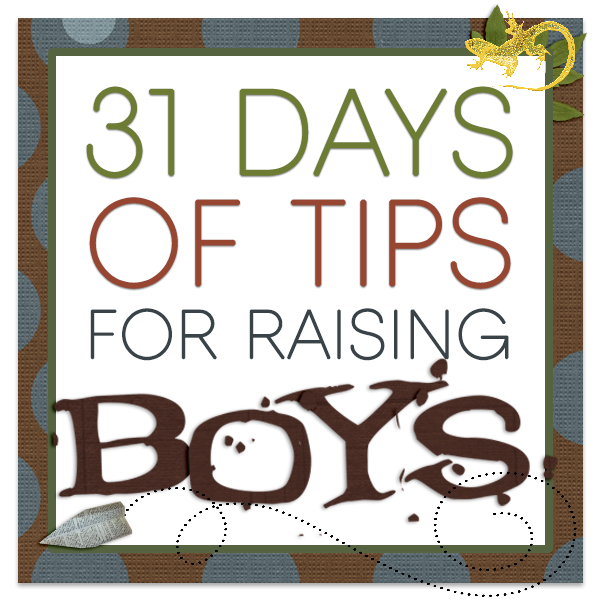I’m pretty positive that we have all experienced some sort of fighting or contention in our homes at one time or another. If not, please tell me your secret! I recently wrote about ways we can reduce sibling rivalry in our homes, but sometimes fighting still continues. Here are some guidelines on what you should do when you have fighting kids.

When Kids Fight: Tips to Reduce Fighting In Your Home
I wish I could tell you that I’ve got this whole fighting things figured out and that my boys are perfect gentlemen at all times and always treat each other with love and respect. Well, unfortunately that doesn’t happen. They are great kids, but arguments break out over silly things. I love the book If I Have to Tell You One More Time…:By Amy McCready (Affiliate link, but I really love this book!). It has been a lifesaver to me and as I use the principles found in the book, I am finding that our home is becoming (we’re not there yet!) a happier place to be. In the book she shares some guidelines for what to do when fights break out.
What to Do When Kids Fight
1. Ignore and Stay Out of Fights
This can be so hard, but most of the time our kids fight because they are seeking attention, good or bad. Let your children know in advance that you will be ignoring any fighting they are involved in. When we stay out of the arguments (unless someone is getting hurt), it removes the payoff of mom’s attention, gives you a chance to take a deep breath and helps you determine whether you need to get involved or not. Plus it empowers kids to figure things out on their own.
2. Teach Conflict Resolution
As a parent, our job is not to fix everything and solve every problem, although we want to. Our job is to teach our children how to resolve conflicts on their own. Kids need training on how to work things out and that training takes practice.
Ways we can train our children to resolve conflicts:
- Give Personal Space – Several fights at home start over someone taking an item that their sibling wanted or that belongs to them. Give each a personal space to keep their things. If their items are put away in their proper place, then nobody can touch them, but if they are left out, they are fair game for younger siblings. This helps to avoid conflict before it starts.
- Help Them Decide What They Will Do In Different Situations – Tell your kids that no one needs to be the victim in a fight. They always have a choice to participate in fighting or to walk away. Talk to you children about things that cause fights, such as destroying someone’s property or calling names.
- Teach Ways to Communicate without fighting– Teach them to use “I feel” statements to express how they are feeling and how to make respectful requests to solve their problems. Now, most adults have a hard time with these when they are in the heat of the moment so understand that these things will take time.
- Be a Good Example – Set a good example with other adults and with your spouse. Everywhere you go you can see that kids mimic the behaviors they see at home whether they are appropriate or not.
3. Parent Involvement
If fighting is getting worse or one child is getting physically hurt, you need to step in and help. But your goal is not to determine who is right or wrong. Your job is to get them talking in ways that can help to end the conflict. Give each child a chance to tell their story using “I feel” statements so they can address their emotions without placing blame on their sibling. Then ask what ideas they have to solve the problem. Stay quiet while they decide. You can give suggestions, but it should be up to them how they resolve the issue.
4. All In the Same Boat
Make it clear that if they can’t come up with a solution on their own, then no one “wins”. If they can’t decide on a solution for a toy they are fighting over, then the toy gets put away. My boys fight over whose turn it is to play video games. If they can’t come up with a solution without arguing, then the game goes off for everyone. Everyone gets the same consequence. Only use this step after you have tried the above three and remind kids that it’s not important who started the fight. All that matters is who continued it and chose to participate. They can always walk away.
Overall, there is no simple answer to getting kids to stop fighting and these steps take time and practice. I have just brushed the surface of the great advice given in If I Have to Tell You One More Time…: The Revolutionary Program That Gets Your Kids To Listen Without Nagging, Reminding, or Yelling. I have very few parenting books that I really love, but this one is great. But..it takes a great deal of patience and practice to make a positive difference in our homes. Using the tools found in this book, you can be one step closer to having a happy home.
This post is a part of our series 31 Days of Tips for Raising Boys. Each day throughout the series we are discussing a different topic regarding raising boys. I’d love for you to follow along and share this series with other parents of boys who may need some support or just to hear that they aren’t alone in their journey of raising boys.


Leave a Reply